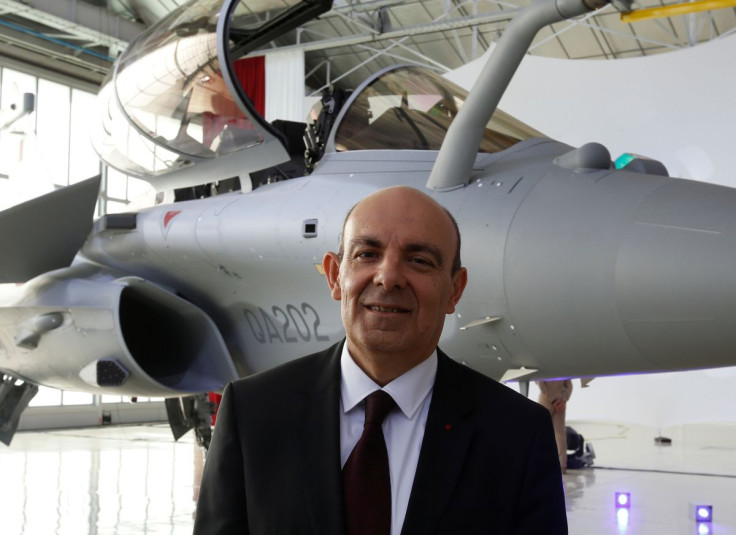Dassault CEO Frustrated Over Fighter Talks With Airbus

Dassault Aviation voiced frustration over a dispute with partner Airbus about the next phase of work on the European FCAS fighter project and said it was important to establish clear leadership.
The Future Combat Air System (FCAS), which has been dogged by political and corporate differences, has been designed to replace the Eurofighter and Dassault's Rafale with a combination of manned and unmanned aircraft from 2040. The project's main government backers are France, Germany and Spain.
"I accept to be leader if I have the leverage to be leader," Chief Executive Eric Trappier said, referring to Dassault's responsibility for the core fighter element of the design.
Dassault and Airbus have been at odds over responsibility for flight controls, but Trappier said Dassault was prepared to share some of the work as long as it was free to run the first of seven project 'pillars' - involving the aircraft - as agreed.
"We have made enough efforts," Trappier said, adding talks had been 'difficult' in the face of new demands since September.
Airbus did not immediately respond to a request for comment.
Some defence analysts have speculated that differences over FCAS could sink the project and reshuffle industry alliances.
Airbus Chief Executive Guillaume Faury said last month, "we continue to work with our industrial partners with the objective to move on to the next development phase later in the year".
Announcing results earlier on Friday, Dassault said it was targeting agreement on the next stage of the FCAS project, known as phase 1B, before end-year. Trappier said the process had dragged on "in my opinion for too long".
GERMAN SPENDING
Trappier told a news conference that Dassault, which built France's Rafale alone after Paris pulled out of the Eurofighter programme in the 1980s, had benefited from developing its flight controls hand-in-hand with the warplane itself.
He acknowledged Airbus' reputation for advanced flight controls for its jetliners but noted its design bureau was based in France, rather than at its defence factory near Munich.
Airbus represents Germany and Spain in the project so its work on the fighter needs to be handled by those countries.
Because it represents two nations, Airbus will have industrial responsibility for two thirds of FCAS, while Dassault will have one third.
Trappier contrasted splits over FCAS with an agreement last week to launch an Airbus-led Franco-German-Italian 'Eurodrone,' whose flight controls will be built by Dassault.
The French CEO meanwhile raised concerns over Germany's tentative decision to seek American F-35 warplanes.
Germany could purchase U.S. F-35 fighter jets built by Lockheed Martin to replace its ageing Tornado, Chancellor Olaf Scholz said on Sunday.
The move involves a more pressing schedule and different role compared to the broader FCAS project, but Trappier said others were watching Berlin following the historic policy shift.
"If the first decision after raising the (German defence) budget to 100 billion euros...is to buy the F-5 F-35 that is going to cool our feelings of support in that type of area," he said.
© Copyright Thomson Reuters 2024. All rights reserved.





















